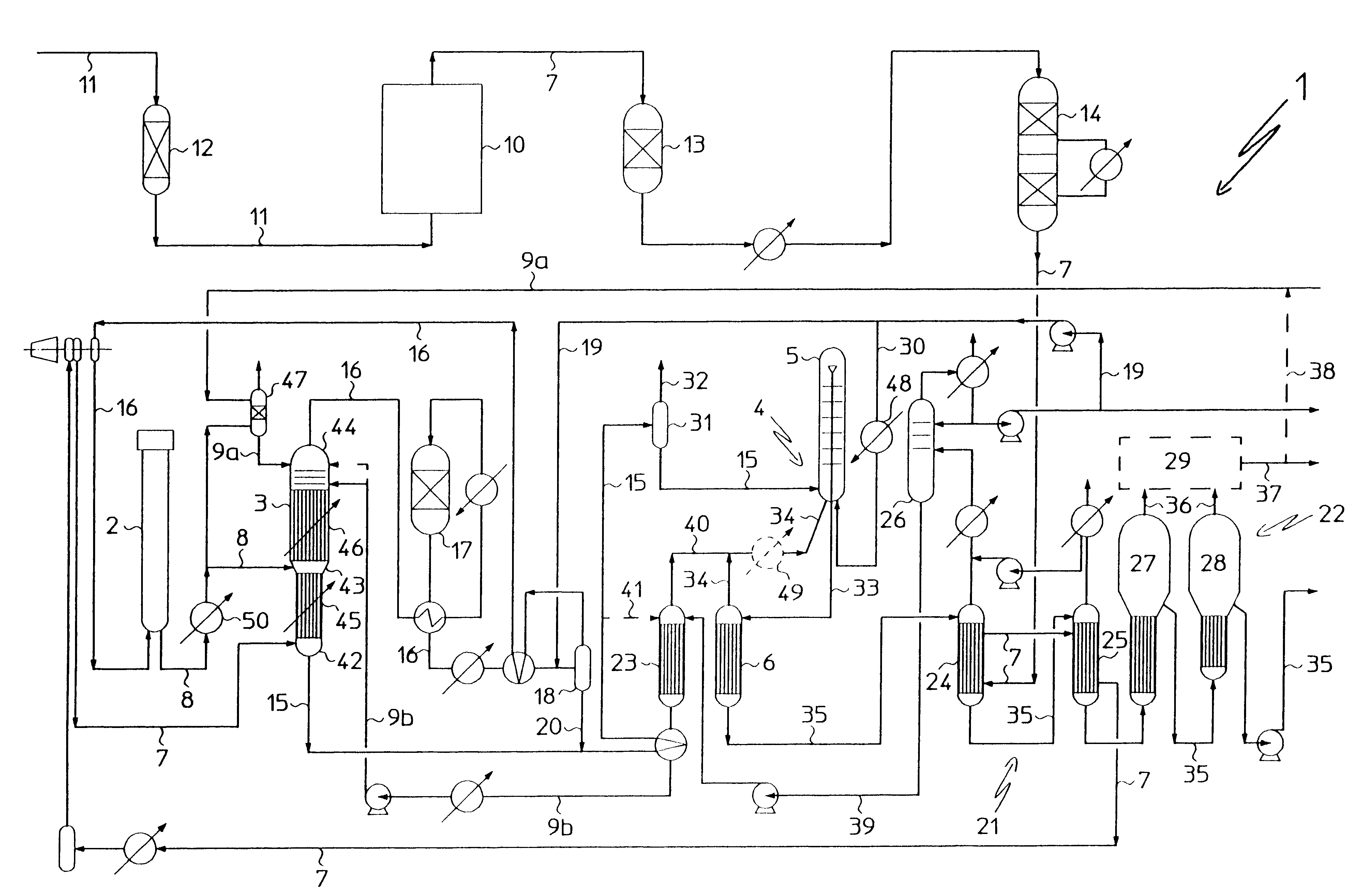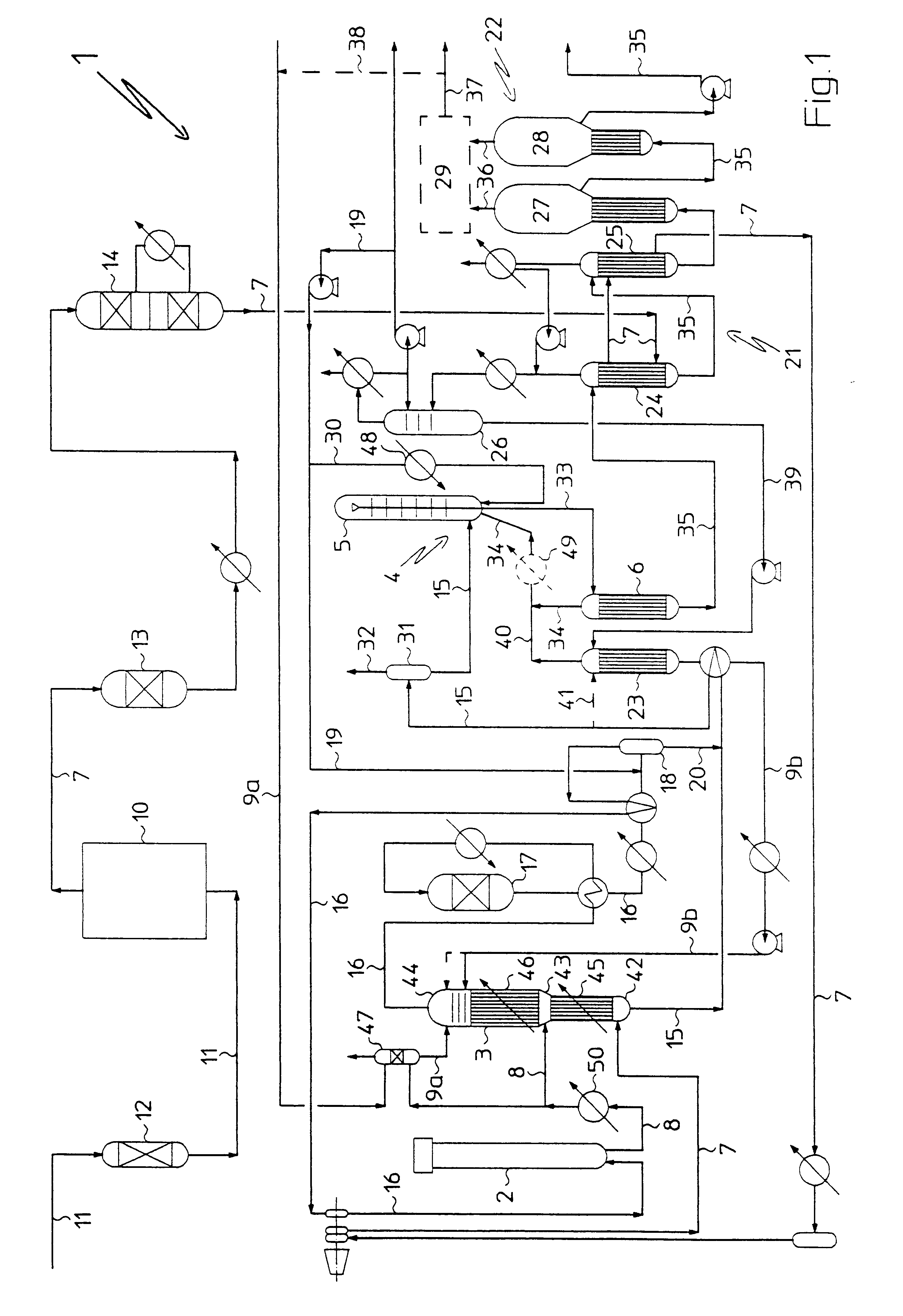Process for combined production of ammonia and urea
a technology of ammonia and urea, which is applied in the direction of gas-gas reaction process, bulk chemical production, organic chemistry, etc., can solve the problems of high energy consumption and operating costs, unsatisfactory conversion yield, and relatively high h.sub.2 o/co.sub.2 molar ratio in such synthesis reactors
- Summary
- Abstract
- Description
- Claims
- Application Information
AI Technical Summary
Benefits of technology
Problems solved by technology
Method used
Image
Examples
Embodiment Construction
With the only aim of making the description of the present invention simpler, reference will be made to the connection ducts of the different plant parts, as well as to the same plant parts described in the following and represented in FIG. 1, conventional in themselves, only wherever it is strictly necessary.
With reference to FIG. 1, there is generally indicated by 1 a plant for combined production of ammonia and urea according to the invention.
Advantageously, plant 1 comprises an ammonia synthesis reactor 2, a carbamate synthesis section 3, a urea synthesis section 4, a urea recovery section 21, and a carbamate decomposition section 23.
The urea synthesis section 4 comprises, serially arranged relatively to one another, a urea synthesis reactor 5 and a high pressure (about 180 bar a) stripper 6, for the partial decomposition of carbamate and the separation of the free ammonia in aqueous solution present in the reaction mixture coming from reactor 5.
As will be seen later on, the pro...
PUM
| Property | Measurement | Unit |
|---|---|---|
| pressure | aaaaa | aaaaa |
| pressure | aaaaa | aaaaa |
| pressure | aaaaa | aaaaa |
Abstract
Description
Claims
Application Information
 Login to View More
Login to View More - R&D
- Intellectual Property
- Life Sciences
- Materials
- Tech Scout
- Unparalleled Data Quality
- Higher Quality Content
- 60% Fewer Hallucinations
Browse by: Latest US Patents, China's latest patents, Technical Efficacy Thesaurus, Application Domain, Technology Topic, Popular Technical Reports.
© 2025 PatSnap. All rights reserved.Legal|Privacy policy|Modern Slavery Act Transparency Statement|Sitemap|About US| Contact US: help@patsnap.com


